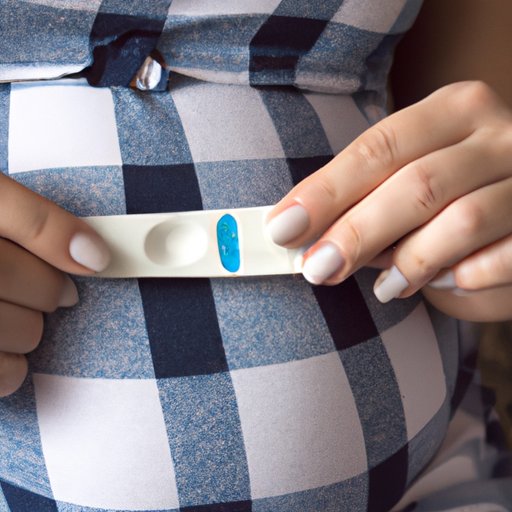
Introduction
Pregnancy is an exciting and life-changing experience for many women. It’s a time of joy and anticipation, but it can also bring some discomfort and uncertainty as your body undergoes many changes and transitions. One of the most significant early changes is the onset of pregnancy symptoms. In this article, we’ll explore when pregnancy symptoms typically start showing up, what you can expect, and how to tell if you are pregnant.
Early Symptoms of Pregnancy
Early pregnancy symptoms can vary widely between women, but there are some common experiences that many share. The most typical early symptoms include:
- Fatigue and exhaustion
- Nausea and vomiting
- Breast tenderness and soreness
- Spotting or light bleeding
- Food aversions or cravings
These symptoms can start appearing as early as one week after conception, but many women don’t experience them until several weeks after conception. It’s also important to note that some women may not experience any symptoms at all during early pregnancy.
How to Distinguish between Early Pregnancy Symptoms and PMS Symptoms
Early pregnancy symptoms can be similar to premenstrual syndrome (PMS), which can make it difficult to tell the difference between the two. However, there are some key differences to look for.
If you’re experiencing more severe symptoms than usual, such as intense cramping or heavy bleeding, it could be a sign of early miscarriage. It’s important to monitor your symptoms closely and seek medical attention if anything feels unusual or concerning.
Why Do Pregnancy Symptoms Develop Sooner in Some Women?
Early pregnancy symptoms can develop sooner in some women because of various factors that can affect a woman’s body. Some of these factors include:
- Age
- Overall health and wellness
- Lifestyle habits such as diet and exercise
- Timing and method of conception
While there isn’t a one-size-fits-all answer for when early pregnancy symptoms will show up, it’s essential to pay attention to your body and give yourself time to rest and recover if you’re experiencing any discomfort or stress.
Tips for Women Trying to Conceive
If you’re trying to conceive, there are several things you can do to increase your chances of success and prepare for early pregnancy symptoms. Here are some tips:
- Track your menstrual cycle and ovulation using apps or a calendar.
- Avoid smoking, drinking, and drug use that can harm your body and your baby’s health.
- Eat a healthy and balanced diet rich in nutrients and vitamins needed for pregnancy.
- Take prenatal vitamins as recommended by your doctor.
- Reduce stress and avoid overexerting yourself physically or mentally.
What to Do if You Aren’t Sure If You Are Pregnant
If you suspect you may be pregnant but are unsure, the best thing to do is take a home pregnancy test or visit your doctor for a more accurate pregnancy test. Home pregnancy tests can detect the presence of the pregnancy hormone hCG in your urine as early as one week after conception.
If you receive a positive pregnancy test result, be sure to schedule an appointment with your doctor to begin prenatal care and discuss any questions or concerns you may have. If you receive a negative result but continue to experience pregnancy symptoms, see your doctor to rule out other potential causes.
Conclusion
Understanding pregnancy symptoms and when they can occur can help women prepare for the changes ahead and seek support when needed. Remember that every woman’s experience of pregnancy is unique, and it’s essential to listen to your body and seek medical attention if anything feels concerning or unusual.




